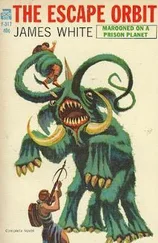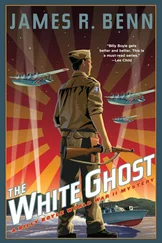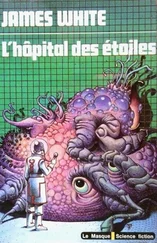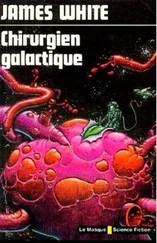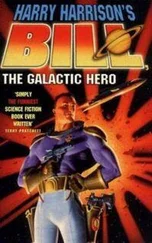“I don’t know anything about it, either,” said Naydrad, its fur spiking in irritation. “At least, nothing but a rumor that three weeks of top-level discussions were needed to decide whether or not Rhabwar could do the job. And when they did finally make up their minds, they keyed my alarm for a full emergency turn-out when I was right in the middle of …”
“Friend Naydrad,” Prilicla broke in gently, “it is often the case that the time taken to reach a decision has to be deducted from that needed to carry it out. The rumor was not entirely accurate. I took part in those discussions but, in spite of our unrivaled reputation for pulling sick or damaged life-forms out of trouble, I was not sure that Rhabwar is capable of performing this mission. Many of the hospital’s military and medical authorities agreed with me; the Chief Psychologist and a few others did not. The only reason for the secrecy was to avoid hurting the feelings of Rhabwar’s crew by publicly displaying their lack of confidence in us.
“And the questions that I feel you all wanting so badly to ask,” it went on, “should wait until we have viewed the Wemar material.
“When you are ready, friend Fletcher.”
At the time of its discovery three months earlier, it was not thought that the world, which its dominant intelligent species called Wemar, would cause the cultural-contact specialists of the Monitor Corps any serious problems. It was an environmentally distressed world with subsistence level living standards for the tiny remnant of its surviving population that verged on uninhabitability. In its recent history — from the orbital studies of industrial archeological remains the date was estimated at a little over four centuries earlier — the native culture had been technologically advanced to the level of maintaining orbiting space satellites, and there were traces of a non-permanent base on the system’s closest and uninhabitable planet.
Because of their background of recently lost space technology, two important assumptions had been made. One was that the Wem would not be frightened by the idea of a galaxy inhabited by other intelligent beings and, even though they might be surprised and uneasy at the sudden arrival of a starship in orbit around their world, they would not be completely against the idea of making friendly contact with other-species visitors. The second assumption was that when contact had been widened and their natural fears allayed, they would agree to accept the offers of material and technical support which they so desperately needed.
Both assumptions proved wrong. When two-way translation-communication devices were soft-landed in the few inhabited areas — sound and vision communications were a part of their lost technology — the natives exchanged only a few angry words before ordering the strangers to leave Wemar and its system before smashing all of the off-world devices. Evidently they had grown to fear all forms of technology as well as the people who used it. Only one small, isolated group had shown some trace of reluctance at breaking off contact but they, too, destroyed the translator-communicators that had been sent to them.
Plainly the Wem were a proud species who would not accept the kind of help that the off-worlders were so anxious to give them.
Rather than risk the situation degenerating further, the commanding officer of the orbiting Monitor preliminary contact ship obeyed the first order by ceasing to send down any more communication devices, and ignored the second, safe in the knowledge that the planet-bound Wem could do nothing against the orbiting vessel which continued its close observation of the surface. Shortly afterwards, Wemar had been declared a disaster area, and Rhabwar had been sent to assess the medical problems and, if possible, suggest a solution.
It had never been the Federation’s policy to do nothing while another intelligent species tried to commit suicide.
Rhabwar emerged from hyperspace some ten planetary diameters from Wemar. From that distance it appeared to be like any other normal, life-bearing world, with wisps and blankets of cloud and the fat, white spirals of cyclonic weather systems softening and breaking up its continental outlines and polar ice fields. It was only when they had closed to within one diameter that the abnormal details became plain.
In spite of the generous scattering of rain-bearing clouds, it was only in a narrow band around the equator that the surface vegetation showed any traces of normal growth. Above and below the green belt and into the north and south temperate zones the coloration became increasingly tinged with yellow and brown until it merged into the tundra fringing the polar ice-fields. There were no large tracts of desert visible on those areas, it was simply that the once-thick forests and rolling grasslands of the past had withered and died or burned in what must have been great country-sized conflagrations due to naturally occurring lightning strikes, and the new growth was still fighting its way through the ashes of the old.
They were still watching but not enjoying the view when the casualty deck’s communicator lit with the image of the Captain.
“Doctor Prilicla,” said Fletcher, “we have a signal from Captain Williamson on Tremaar. He says that it is operationally unnecessary for Rhabwar to dock with his ship, but he would like to speak with you at once.”
The commanding officer of a Monitor Corps survey and preliminary contact vessel would hold a lot more rank than the Captain of an ambulance ship, Gurronsevas thought, and clearly this one intended to use it.
“Senior Physician Prilicla,” Williamson said without preamble, “I have no wish to give personal offense, but I am not pleased to see you here. The reason is that I am not happy with a mission philosophy based on near desperation and the assumption that if your presence here does not do any harm then it might do some good. From your briefing you already know that the situation here has gone sour and there are no signs of it improving. We are maintaining constant visual and surface sensor surveillance, but we have no direct communication with anyone on the surface. There is one small group of Wem who may be less proud and stubborn, or simply more intelligent than the others, who gave the impression that a few of their number thought they might be able to benefit from our offers of help. But they, too, stopped speaking to us and smashed our translators. Personally, I believe there is still a possibility that, provided we do nothing further to offend them, this group might resume contact and, if it is handled carefully, enable us to reopen communications with the other, less amenable groups who in time will accept the large-scale disaster relief they need so badly.”
Williamson took a deep breath and went on, “Regardless of your good intentions, Rhabwar blundering uninvited into this situation could end this tenuous future hope. And if you were to set down in an equatorial region, where the political power and the remains of their offensive technology are concentrated, it could also result in damage to your ship and casualties among your personnel. The efforts of a small medical team are not going to significantly affect the situation here, except possibly for the worse …”
While the other Captain was speaking, Gurronsevas studied its manner and minor changes of facial expression. It was an Earth-human who in many ways resembled Chief Psychologist O’Mara. The hairy crescents above the eyes and the head fur showing below the uniform cap were an identical shade of metallic grey, the eyes never looked away nor did they blink, and its words carried the self-assurance that went with the habit of command. In manner, however, Williamson was much more polite than O’Mara.
Читать дальше
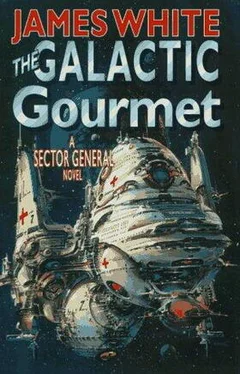
![Гарри Гаррисон - Bill, the Galactic Hero [= The Starsloggers]](/books/87536/garri-garrison-bill-the-galactic-hero-the-star-thumb.webp)
